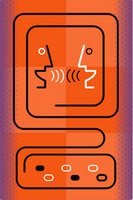 The following is a post by the blogmaster (Kevin McGrew), who is also a member of IQs Corner Virtual Community of Scholars project.
The following is a post by the blogmaster (Kevin McGrew), who is also a member of IQs Corner Virtual Community of Scholars project.Historically there has been considerable debate re: the causal relations between psychometric intelligence and academic achievement. Positions have ranged from (a) current achievement causes future intelligence, (b) intelligence and achievement are reciprocal in causality, (c) both constructs are simply difference slices of the same domain and are not distinct constructs, and (d) current intelligence causes future achievement. A real chick-egg causal issue.
An article to appear in the journal Intelligence, using cross-lagged panel analysis methods with the WISC-III and achievement tests, supported the position that intelligence predicts (causes?) achievement and not vice-versa.
Article information is presented below.
- Watkins, M. & Canivez, G. (2006, in press). Psychometric intelligence and achievement: A cross-lagged panel analysis. Intelligence. [click here to view article]
- There has been considerable debate regarding the causal precedence of intelligence and academic achievement. Some researchers view intelligence and achievement as identical constructs. Others believe that the relationship between intelligence and achievement is reciprocal. Still others assert that intelligence is causally related to achievement. The present study addressed this debate with a cross-lagged panel analysis of WISC-III and achievement test scores of 289 students assessed for special education eligibility with a test–retest interval of 2.8 years. The optimal IQ–achievement model reflected the causal precedence of IQ on achievement. That is, the paths from IQ scores at time 1 to IQ and achievement scores at time 2 were significant whereas the paths from achievement scores at time 1 to IQ scores at time 2 were not significant. Within the limits imposed by the design and sample, it appears that psychometric IQ is a causal influence on future achievement measures whereas achievement measures do not substantially influence future IQ scores.
- With due consideration of these caveats, the present study provides evidence that psychometric intelligence is predictive of future achievement whereas achievement is not predictive of future psychometric intelligence. This temporal precedence is consistent with the theoretical position of Jensen (2000) that intelligence bears a causal relationship to achievement and not the other way around. press).
Technorati Tags: psychology, educational psychology, cognition, intelligence, IQ, achievement, education, psychometrics, IQ testing, WISC-III, Wechsler, cross-lagged panel analysis, g, general intelligence, school psychology
powered by performancing firefox

No comments:
Post a Comment
Note: Only a member of this blog may post a comment.